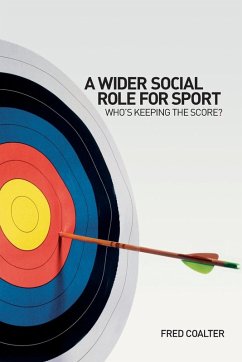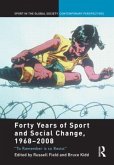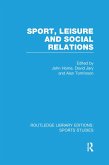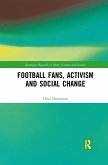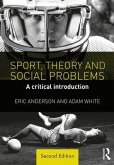Sport is perceived to have the potential to alleviate a variety of social problems and generally to 'improve' both individuals and the communities in which they live. Sport is promoted as a relatively cost effective antidote to a range of social problems - often those stemming from social exclusion - including poor health, high crime levels, drug abuse and persistent youth offending, educational under-achievement, lack of social cohesion and community identity and economic decline. To this end, there is increasing governmental interest in what has become known as 'sport for good'. A Wider Social Role for Sport presents the political and historical context for this increased government interest in sport's potential contribution to a range of social problems. The book explores the particular social problems that governments seek to address through sport, and examines the nature and extent of the evidence for sport's positive role. It illustrates that, in an era of evidence-based policy-making, the cumulative evidence base for many of these claims is relatively weak, in part because such research is faced with substantial methodological problems in isolating the precise contribution of sport in many contexts. Drawing on worldwide research, A Wider Social Role for Sport explores the current state of knowledge and understanding of the presumed impacts of sport and suggests that we need to adopt a different approach to research and evaluation if sports researchers are to develop their understanding and make a substantial contribution to sports policy..
Hinweis: Dieser Artikel kann nur an eine deutsche Lieferadresse ausgeliefert werden.
Hinweis: Dieser Artikel kann nur an eine deutsche Lieferadresse ausgeliefert werden.

